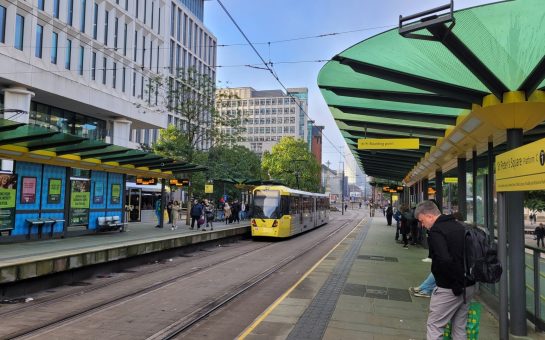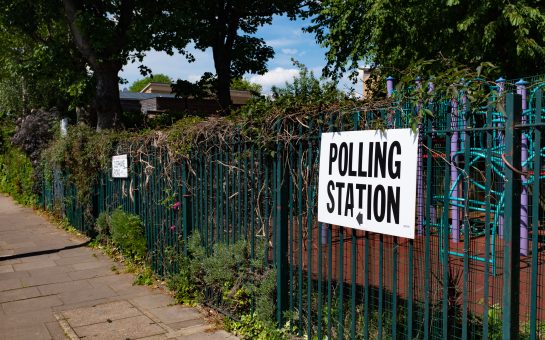On 4th July under the leadership of Sir Keir Starmer, the Labour Party returned to government for the first time in over fourteen years.
With a huge majority of 174, the victory presents a huge shift in the British political landscape, providing the party with a strong foundation to begin their strategy for change.
With 25 out of 27 constituencies in the Greater Manchester area voting Labour and several members of the new cabinet representing these constituencies, many locals will be hoping for and expecting this new government to make an immediate impact on the area.
As the former industrial capital of the world, Manchester has maintained its economic importance to the UK, now home to a diverse range of valuable sectors.
Let’s take a closer look at how this Labour win will impact the region’s most vital industries.
Housing and Construction
The construction industry has endured a difficult few years with multiple factors such as Brexit, the COVID-19 pandemic and changes to environmental and safety regulations presenting a myriad of complex challenges.
Labour shortages, rising material costs and general economic uncertainty have caused a stagnation in the industry at a time when the British public is crying out for improved infrastructure projects and new affordable housing.
As one of the fastest-growing cities in Northern England, Manchester is at the forefront of this need for improvement.
Labour has promised to build 1.5 million new homes over the next five years, stating their intention to modernise planning laws and instil mandatory housing targets to ensure a more streamlined planning process with reduced lead times.
While it still remains uncertain just how Labour plan to implement these significant changes, initial steps have already been taken, with Housing Secretary Angela Rayner already meeting with local authority leaders, including Manchester mayor Andy Burnham, to discuss distinct planning policies for specific areas.
Digital and Media
Following the development of MediaCityUK in the 2010s, Manchester has established a thriving digital and media industry with this forward-thinking sector now worth around £5 billion.
Home to a cluster of world-renowned media companies including the BBC, ITV studios and Warner Bros, the city is truly at the heart of innovation driving the sector forward.
While the Tories have recently shown support for the industry in their 2024 Media Bill, many of those working within argue that over the party’s 14-year rule, the industry has been starved of funding following waves of budget cuts.
It is apparent therefore that those involved with digital and media projects will be expecting the new government to reward the industry’s success and outline some plans for growth.
One central strategy outlined in their manifesto is to invest in UK digital infrastructure, improving internet connectivity and expanding high-speed broadband access across the country.
While a simple proposition, this could be a game-changer for the burgeoning digital scene in Manchester.
Hospitality, Leisure and Tourism
After London, Manchester is the most visited city in England attracting around 1.7 million tourists in 2023 alone.
Famed for its historic music scene, the city is home to a wealth of high-quality bars, restaurants and theatres as well as two of the largest venues in the UK in the AO and Co-op Live arenas.
Furthermore, Manchester’s gaming and casino industry is a big revenue spinner, home to several land-based casinos, and a wealth of iGaming companies.
Due to this boom, we’ve seen sites like Casino.org pop up as a way for gamblers to find casino sites in Manchester and beyond.
But, Labour hasn’t committed to any policy promises in the online gambling sector yet, so we will have to wait and see what repercussions the sector has coming its way.
However, since the pandemic in 2020, the UK hospitality sector has been fighting for survival with increased energy prices and rental costs squeezing businesses’ revenues.
Many say that the industry has now become unsustainable.
Look no further than Manchester where multiple popular venues such as Blackdog Ballroom and Liquid & Envy have unfortunately had to close their doors for good.
Earlier this year, Labour set out a five-point plan in a strategy to rejuvenate the British high street, with a major focus on reforming business rates paid by small businesses.
As hospitality venues often hold a rental cost that is far higher than the high street average, it is reported that they often pay up to three times as much in business rates.
While there remains uncertainty over the true impact Labour will have on the immediate future of these businesses, it seems that they are well aware of the issues faced by this vital sector.
Life Science and Healthcare
The requirement to get the NHS back on its feet, operating as an effective healthcare system for all, is one the greatest challenges the new government will face as they make their way into office.
Patient lead times are at an all-time high with Manchester Royal Infirmary fourth on the list of longest appointment waiting times.
One key way in which to improve the system is through research and innovation in health and life science to produce more effective and streamlined treatment.
Nowhere is at the forefront of life science research like Manchester, home to world-leading research centres such as UK BioBank and the Manchester Cancer Research Centre.
As the first UK city to have devolved control of its healthcare budget, it is clear that the region is leading the way in the fight to revolutionise the NHS.
Labour has already stated they want a healthcare system that is ‘fit for the future’ outlining a detailed plan that many are calling ambitious.
One of the key promises is to slash NHS waiting times, providing 40,000 more appointments per week while they also aim to ensure an additional 2 million scans and operations are carried out every year.
These bold promises offer a glimpse of hope for those waiting for vital healthcare treatment, however with the issue of continuing staff strikes and questions over funding, it is clear that this will not be a quick fix.
The promise of change is at the centre of this Labour government’s game plan.
Through significant investment, regulatory change and cooperation with regional authority leaders the potential is there for a real positive impact on British industries.
As Manchester continues its development as a nation-leading city, it could prove to be the bellwether for Labour’s success.
Photo by Jakob Cotton on Unsplash




